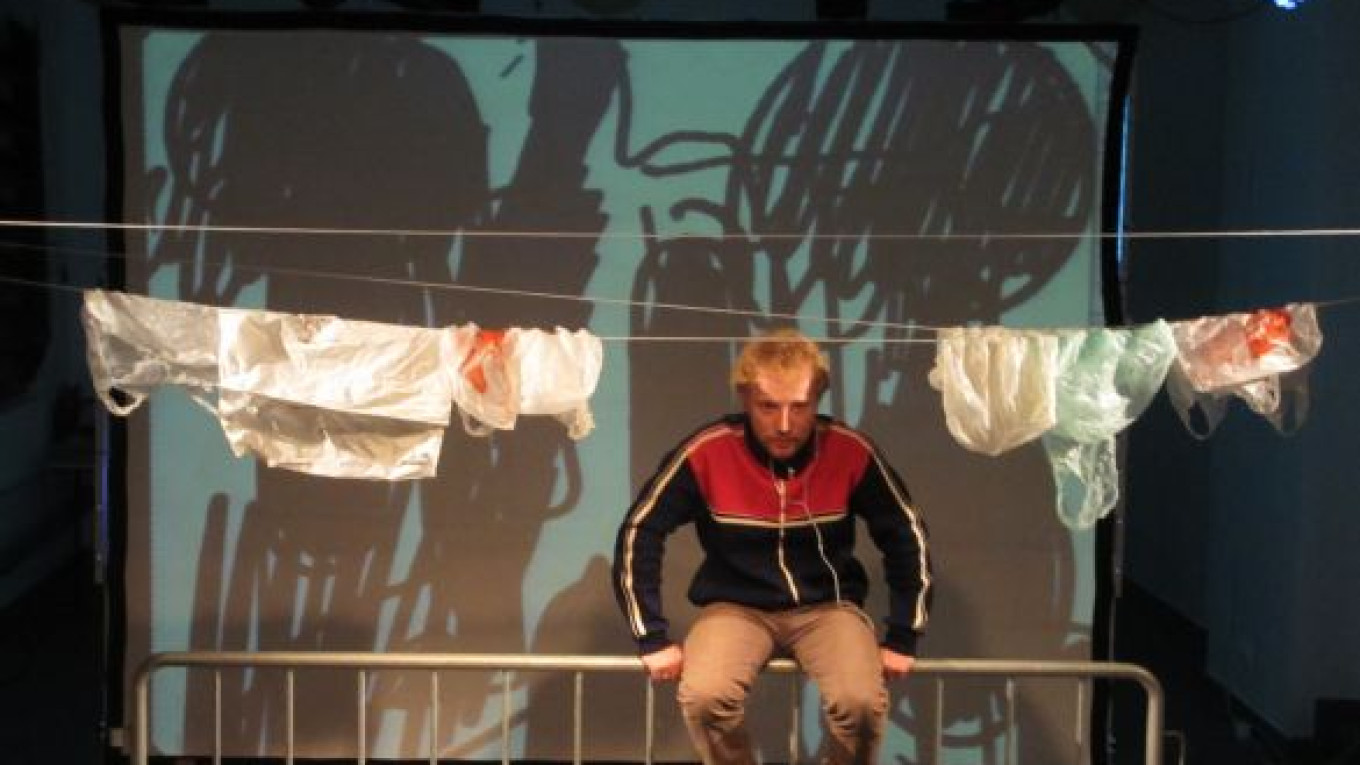Documentary theater has been an innovative, powerful art form at times over the last decade. Most often it is associated with Teatr.doc, a small venue founded in 2002 whose name is quite obviously derived from the notion of documents and theater coming together.
As of this fall, however, there will be a new player in the field. Its name, the Fourth Theater, is nondescript though accurate. It is, after the Hermitage Theater, the Sfera Theater and Novaya Opera, the fourth performance venue to open its doors in the general area of the Hermitage Garden.
Aside from its location, the Fourth Theater will have little in common with its neighbors. With its stage located in the basement of the new Memorial Society building at 5/10 Karetny Ryad, the theater will present shows based to one degree or another on documents collected and preserved by this important archival, historical and human rights organization.
Speaking at a four-day June workshop titled the Drama of Memory, critic and translator Pavel Rudnev declared: "The appearance of a theater like this is important because it is located in a place where divergent disciplines come together."
Yelena Zhemkova, Memorial's executive director, told workshop attendees that the idea of the archive opening a theater was an exciting, but daunting experiment, "an attempt to find bold new ways of bringing our holdings and the important information they contain to the attention of the public. We're interested in finding out how theater can help us get more out of the rich materials we possess."
The variety of sources for the 12 Drama of Memory readings and performances was large. They included the transcript of the famous 1964 trial against poet Joseph Brodsky; a diary kept by a Siberian prison camp warden in 1935 and 1936; transcripts of radio interactions among Russian policemen during the bombing of the Russian White House in 1993; a lecture delivered by Czech playwright, dissident and politician Vaclav Havel in 1989; and letters written throughout the Soviet period to authorities by women waiting to hear from sons, husbands or fathers who had disappeared in the legal system — which is to say, the Gulag.
All of the showings openly, though in varying ways, sought to apply the lessons of the past to the realities of the present and to draw moral or philosophical conclusions. This is clearly theater with an agenda, theater that calls upon its audience to take a stand — or, at least, calls upon the public to pay heed to artists who are taking a stand.
Over the years writers, directors and actors at Teatr.doc have created dozens of shows whose scripts were based on specially conducted interviews, press reports or Internet texts drawn from blogs, live journals and commentaries posted on websites. But the focus there, though sometimes political, has always been on the present day. The notion of using dusty archival materials as the basis for live performances is only now coming into its own.
The method was previously employed for several shows at Georg Genoux's Joseph Beuys Theater, housed in the Andrei Sakharov Center, and that surely is why the Memorial Society invited Genoux to put together a team to create the Fourth Theater.
"It has become clear that in order to create a show about the present, we have to turn to the past. The sources for totalitarianism are in the past," Genoux wrote July 9 in a piece for Novaya Gazeta in which he laid out his plans for the Fourth Theater.
A German who has worked and resided in Moscow since the late 1990s, Genoux also provided insight as to why the paradoxes of politics and history are important to him as a person and an artist.
"When I was 17, I learned that my paternal grandfather was a high-ranking SS officer," he wrote. "My maternal grandfather was a Jew who translated Chekhov into German."
At least two of the June readings have been given the go-ahead to open the first season at the Fourth Theater in the fall.
Yevgeny Berkovich will fine-tune and complete her production of the trial against Brodsky. In her interpretation, the action occurs in a school where young people study the event while strangely transforming into the characters of Brodsky, his attorney, the prosecutor and others.
Also opening in the fall will be Yury Muravitsky's staging of the letters from women seeking answers about family members lost in prison.
Poet Anatoly Naiman, participating in the June discussion of the Brodsky performance, summed up the opinion of many when he said, "This is a wonderful turn of events for Memorial. This is very timely."
A Message from The Moscow Times:
Dear readers,
We are facing unprecedented challenges. Russia's Prosecutor General's Office has designated The Moscow Times as an "undesirable" organization, criminalizing our work and putting our staff at risk of prosecution. This follows our earlier unjust labeling as a "foreign agent."
These actions are direct attempts to silence independent journalism in Russia. The authorities claim our work "discredits the decisions of the Russian leadership." We see things differently: we strive to provide accurate, unbiased reporting on Russia.
We, the journalists of The Moscow Times, refuse to be silenced. But to continue our work, we need your help.
Your support, no matter how small, makes a world of difference. If you can, please support us monthly starting from just $2. It's quick to set up, and every contribution makes a significant impact.
By supporting The Moscow Times, you're defending open, independent journalism in the face of repression. Thank you for standing with us.
Remind me later.


